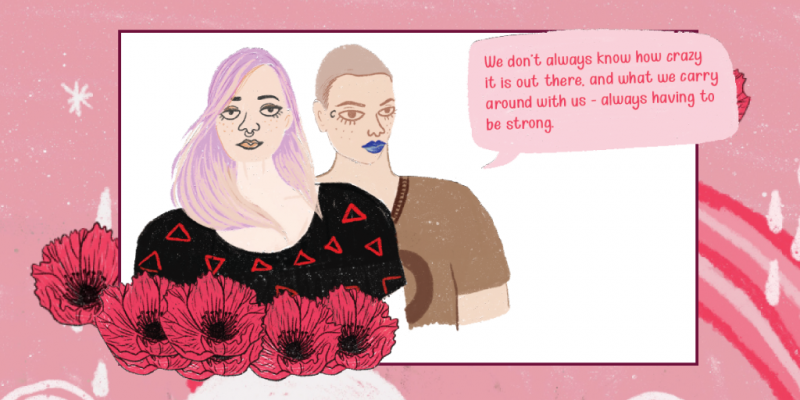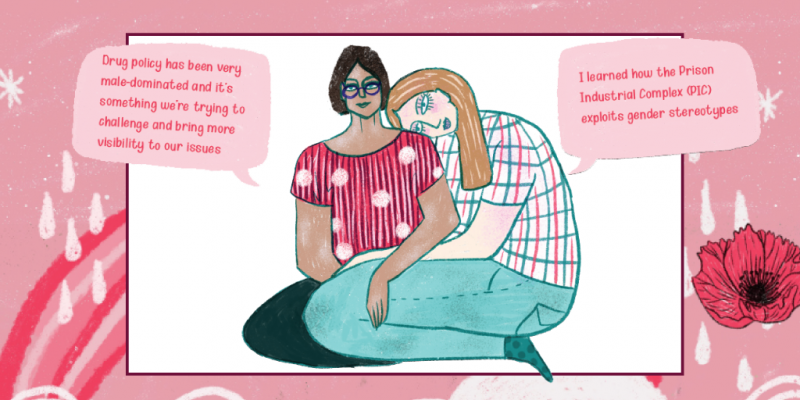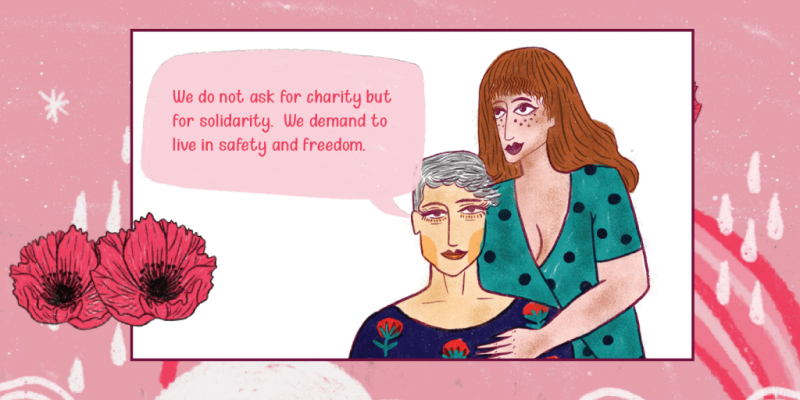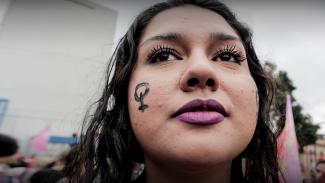From South Africa to Myanmar, from Brazil to Kyrgyzstan, women are resisting the war on drugs. Killings, criminalization, incarceration, denial of medical care, and social stigma are just a few of the effects the war on drugs has had on communities around the world. It targets particular groups, with gender-specific impacts. The war on drugs is clearly a feminist issue.
Yet the effects of repressive drug policies on women, trans and gender-diverse people are rarely discussed in feminist spaces.

What a world without the war on drugs would look like
Imagine a world beyond the war on drugs, beyond stigma, criminalisation, incarceration and violence. Communities growing opium as a medicine and for traditional and cultural use. Black youth and women constructing new models of drug policy and repairing the damage caused by the war on drugs. Care through harm reduction is provided to individuals and communities who have suffered violence. Imagine a world where women and all people enjoy autonomy over their bodies and minds. Where people can choose their own path and receive the medical care it entails.
We asked contributors from across different movements and regions to reflect on what a world beyond the war on drugs would look like in the contexts they work and live in.
Read their thoughts and inspiring visions
Documenting a movement-building process
Over the course of 2018-2019, AWID worked closely with women who use drugs to build solidarity, learn from, support and engage with each other. We have documented our experience in our report “Feminist movements and women resisting the war on drugs”.

What’s special about this report
Our purpose with this documentation is to share AWID’s experience of strengthening relationships and building trust between feminist movements and women who work on humane drug policy in Eastern Europe and Central Asia (EECA) region, and supporting the inspiring global movement-building process led by women who use drugs
We are keen to share this experience because it has been a valuable and deep learning process for AWID as an organization. We believe this process could be useful to groups and movements involved in other cross-movement conversations, and to strengthen relationships and build new alliances.
Inside the report you’ll find:
- How feminism can be enriched by the experiences of women who use drugs
- How we designed a movement-support process with women who use drugs
- The key learnings we drew from this experience
Three key lessons we learned:
-
It is critical for feminist movements to develop awareness of the gendered, racial and class aspects of repressive drug policies and the associated criminalization and stigmatization of people who use drugs.
-
Harm reduction movements intersect with movements of sex workers, people living with HIV, racial justice, and LGBTQI+ movements, among others.
-
We must expand what feminist logistics mean to us, and make feminist spaces more accessible, safe and welcoming for women who use drugs. This is a particularly important lesson for us in AWID, as an organization that hosts convenings.
We are honored to share our learnings and experience. It has been an incredible opportunity to build new relationships with a growing and inspiring movement led by and for women who use drugs and are affected by drug policies. We have learned a lot, and hope you will too!

